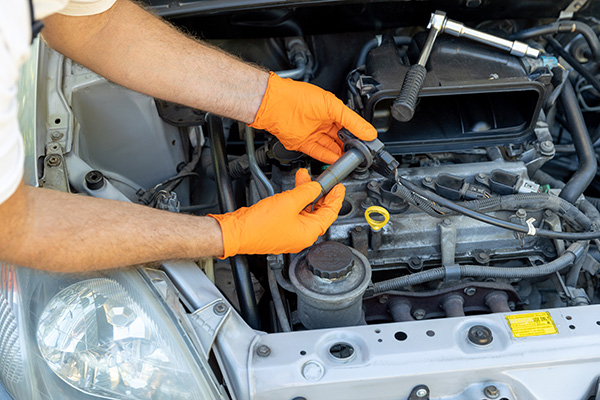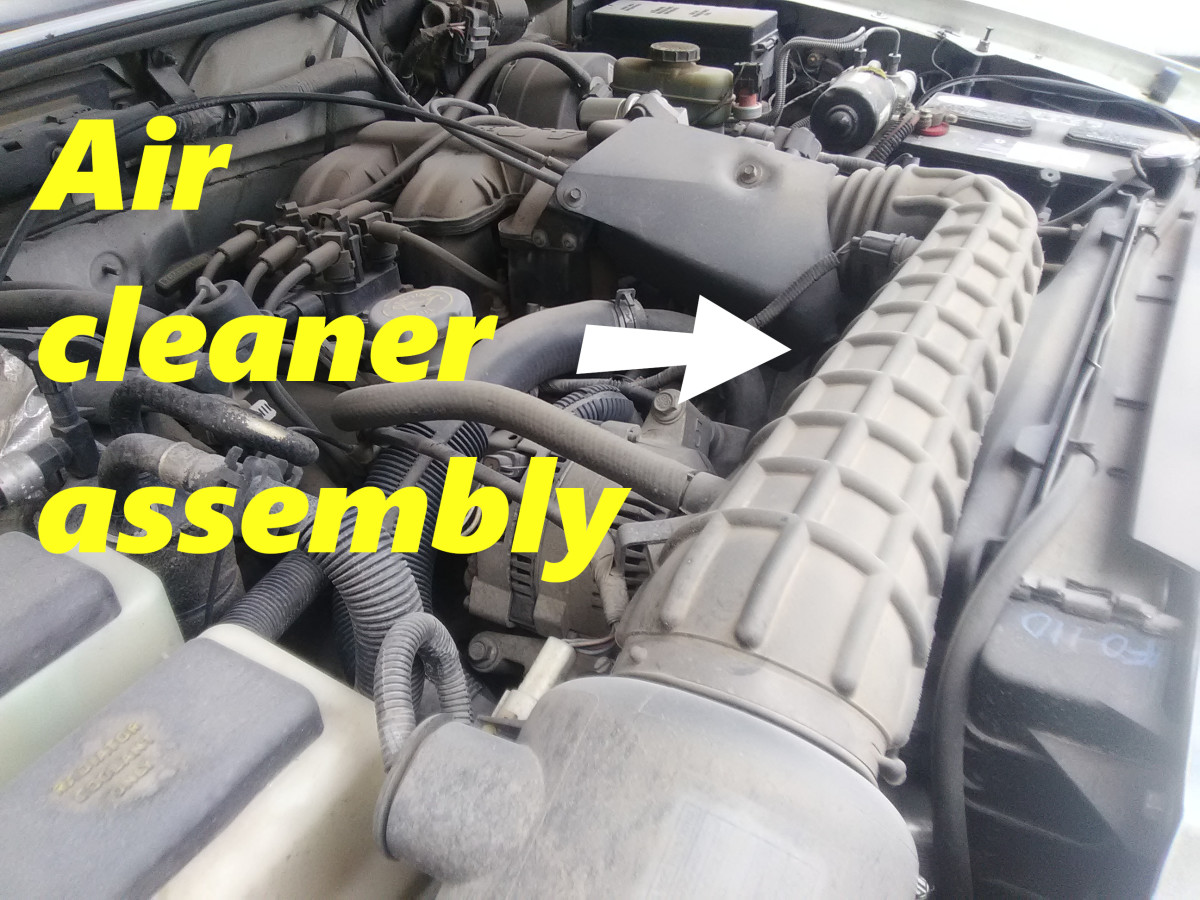Car stalling at idle can be frustrating and confusing. It disrupts your drive and raises concerns.
Why does your car stall when idling? Several factors could be the cause. From engine issues to fuel problems, various elements might be at play. Understanding these causes can help you address the problem effectively. In this blog post, we’ll explore common reasons why cars stall at idle.
We’ll also share tips to prevent it from happening. This way, you can keep your vehicle running smoothly and avoid unexpected breakdowns. Let’s dive in and uncover the mysteries behind car stalling at idle.

Credit: www.communityautoinc.com
Common Causes Of Car Stalling At Idle
Does your car stall at idle? This is a common problem for many drivers. Understanding the causes can help you address the issue. Here are some typical reasons why your car might stall when idling.
Fuel System Issues
The fuel system is crucial for your car’s operation. Problems in this system can cause your car to stall. Some common issues include:
- Clogged fuel filters: These prevent fuel from reaching the engine.
- Faulty fuel pump: An old or damaged pump can fail to supply enough fuel.
- Dirty fuel injectors: These can disrupt the proper fuel-air mix.
Ignition System Problems
The ignition system is another key area. Problems here can stop your engine from running smoothly. Common issues include:
- Worn spark plugs: These can cause misfires and stalling.
- Faulty ignition coils: These coils are essential for starting your engine.
- Defective distributor cap: This can disrupt the electrical flow to your engine.
Understanding these issues can help you diagnose why your car stalls at idle. Regular maintenance can prevent many of these problems.
Dirty Or Faulty Idle Air Control Valve
Experiencing car stalls at idle can be frustrating. One common cause is a dirty or faulty Idle Air Control (IAC) valve. The IAC valve controls the engine’s idle speed. It ensures the engine gets the correct amount of air. A dirty or faulty IAC valve can disrupt this balance, causing your car to stall.
Symptoms Of A Bad Iac Valve
Recognizing the symptoms of a bad IAC valve can help you address the issue quickly.
- Erratic Idle Speed: The engine idles too high or too low.
- Stalling: The car stalls frequently when idling.
- Check Engine Light: The warning light appears on your dashboard.
- Rough Idle: The engine runs roughly while idling.
How To Clean Or Replace Iac Valve
Cleaning or replacing the IAC valve can restore proper engine performance. Here’s a simple guide:
- Locate the IAC Valve: Find the valve on the throttle body.
- Remove the Valve: Disconnect the electrical connector and remove the screws.
- Clean the Valve: Use a carburetor cleaner to remove dirt and debris.
- Reinstall the Valve: Attach the valve and reconnect the electrical connector.
- Test the Engine: Start the engine to ensure proper idle speed.
If cleaning doesn’t work, consider replacing the valve. Follow the same steps for removal and installation.
Clogged Fuel Injectors
Car stalls at idle can be frustrating. One common reason is clogged fuel injectors. Fuel injectors deliver fuel to the engine. When they get clogged, the fuel flow is disrupted. This can cause the engine to stall. Understanding the signs and knowing how to maintain them can keep your car running smoothly.
Signs Of Clogged Injectors
- Rough Idling: The engine runs unevenly when the car is idle.
- Engine Misfire: The engine skips a cycle, causing a jerking motion.
- Poor Fuel Economy: You notice a drop in miles per gallon.
- Difficulty Starting: The engine takes longer to start or fails to start at all.
- Check Engine Light: The dashboard warning light turns on.
Cleaning And Maintenance Tips
Regular maintenance can prevent clogged injectors. Follow these tips:
- Use Fuel Additives: Add a fuel injector cleaner to your gas tank every few months.
- Choose Quality Fuel: Use high-quality gasoline to reduce deposit buildup.
- Replace Fuel Filter: Change the fuel filter as per the manufacturer’s schedule.
- Professional Cleaning: Have a mechanic perform a professional injector cleaning service.
- Regular Inspections: Inspect injectors during routine maintenance checks.
| Maintenance Task | Frequency |
|---|---|
| Add Fuel Additives | Every 3,000 miles |
| Use Quality Fuel | Always |
| Replace Fuel Filter | Every 12,000 miles |
| Professional Cleaning | Every 30,000 miles |
| Regular Inspections | Every oil change |

Credit: www.youtube.com
Malfunctioning Mass Air Flow Sensor
A malfunctioning Mass Air Flow (MAF) sensor can cause your car to stall at idle. The MAF sensor measures the amount of air entering the engine. This data helps the engine control unit (ECU) to adjust the fuel mixture. If the sensor is faulty, the engine may not get the correct air-fuel mix. This can lead to stalling, rough idling, or even a no-start condition.
Identifying Maf Sensor Issues
Recognizing MAF sensor problems is essential. Signs include poor fuel economy and rough idling. Your car might also hesitate during acceleration. A check engine light may appear. Use an OBD-II scanner to confirm the issue. The scanner will give you a specific error code related to the MAF sensor.
Steps To Repair Or Replace Maf Sensor
First, locate the MAF sensor in your engine bay. It’s usually near the air filter box. Disconnect the electrical connector from the sensor. Remove the screws or clamps holding the sensor in place. Carefully take out the old sensor. Inspect the sensor and the connector for dirt or damage.
If the sensor is dirty, clean it with a specialized MAF sensor cleaner. Allow it to dry completely. Reinstall the cleaned sensor. If cleaning does not help, you need a new sensor. Install the new sensor by reversing the removal steps. Reconnect the electrical connector. Clear any error codes with your OBD-II scanner. Start the engine and check for smooth operation.
Vacuum Leaks
Car stalls at idle can be annoying. One common cause is vacuum leaks. These leaks disrupt the engine’s air-fuel mixture. This leads to poor performance and stalling at idle.
Detecting Vacuum Leaks
Detecting vacuum leaks is essential. Start by inspecting vacuum hoses. Look for cracks or disconnected hoses. Another method is using a vacuum gauge. This tool helps measure the vacuum pressure. Low pressure indicates a possible leak. Spraying soapy water on suspected areas also helps. Bubbles will form where there are leaks.
Fixing Common Leak Locations
After detection, fixing the leaks is next. Focus on common leak locations. Check the intake manifold gasket. It often wears out and causes leaks. Replace it if damaged. Also, inspect the throttle body gasket. Ensure it seals properly. Vacuum hoses are another common culprit. Replace any cracked or brittle hoses. Secure all connections tightly to avoid future leaks.
Faulty Spark Plugs
Car stalls at idle can be frustrating. One common cause is faulty spark plugs. Spark plugs create the spark needed to start the engine. If they malfunction, the engine may not run smoothly. This can cause the car to stall, especially when idling. Understanding the signs of faulty spark plugs and knowing how to replace them can help keep your car running smoothly.
Recognizing Spark Plug Problems
Identifying issues with spark plugs is essential. Signs include rough idling and engine misfires. The car may also have trouble starting. Poor fuel economy can also indicate a spark plug problem. Check for these signs to catch issues early.
Replacing Spark Plugs
Replacing spark plugs is a simple task. First, gather the necessary tools. You will need a spark plug socket and a wrench. Next, locate the spark plugs in your engine. Remove the old spark plugs one at a time. Install the new spark plugs carefully. Make sure they are properly tightened. This can improve engine performance and prevent stalling.
Quick Fixes For Car Stalling At Idle
Experiencing a car that stalls at idle can be frustrating and inconvenient. Quick fixes can save you time and help get you back on the road. This section explores simple solutions and when to seek expert help.
Temporary Solutions
Check your fuel level. Sometimes, the car stalls due to low fuel. Fill the tank and see if it solves the issue.
Clean the air filter. A dirty air filter can restrict airflow. Remove the filter and clean it. If it’s very dirty, replace it.
Check the spark plugs. Faulty spark plugs can cause stalling. Inspect and clean them. Replace if necessary.
Inspect the battery. A weak battery can lead to stalling. Check the battery terminals for corrosion. Clean them and ensure they are tightly connected.
When To Seek Professional Help
If the car stalls frequently, it may indicate a deeper issue. Consult a mechanic if stalling persists after trying temporary solutions.
Notice strange noises or smells? These could be signs of serious problems. Seek professional help immediately.
Experiencing warning lights on the dashboard? This can signal engine trouble. Visit a mechanic to diagnose the problem.
If you lack mechanical knowledge or tools, it’s best to consult a professional. They can accurately diagnose and fix the stalling issue.
Preventive Measures
Preventive measures can help avoid the hassle of your car stalling at idle. With regular maintenance, monitoring engine performance, and taking some easy steps, you can keep your car running smoothly. Below are some simple tips to keep your car from stalling when idling.
Regular Maintenance Tips
Regular maintenance is essential. Change the oil every 3,000 to 5,000 miles. Check the air filter every six months and replace if dirty. Inspect the spark plugs and replace them every 30,000 miles. Keep the fuel system clean. Use a fuel system cleaner every few months.
Monitoring Engine Performance
Monitor your engine’s performance. Notice any unusual noises or vibrations. Check the dashboard for warning lights. Use an OBD-II scanner to read error codes. Keep an eye on the temperature gauge. It should stay in the normal range. Listen for misfires or rough idling. Address issues early to avoid bigger problems.

Credit: discover.hubpages.com
Frequently Asked Questions
Why Does My Car Stall At Idle?
Car stalls at idle due to issues like dirty air filters, faulty sensors, or fuel problems.
How Can I Fix A Car Stalling At Idle?
Check and clean the air filter. Inspect sensors. Ensure fuel system is working properly.
Can A Bad Battery Cause A Car To Stall At Idle?
Yes, a weak or failing battery can cause stalling. It affects the electrical systems in your car.
Is It Safe To Drive A Car That Stalls At Idle?
No, it’s not safe. Stalling can lead to accidents. Get it checked immediately.
How Much Does It Cost To Fix Stalling At Idle?
Costs vary. Simple fixes might be cheap. Complex issues can be expensive. Consult a mechanic for an estimate.
Conclusion
Fixing a car that stalls at idle can be frustrating. Understanding common causes helps. Check for fuel system issues, dirty air filters, or spark plug problems. Regular maintenance prevents stalling. Consult a mechanic if unsure. Keeping your car in good shape ensures smooth idling.
Don’t ignore small issues; they grow bigger. Address stalling early. Your car will thank you.
















